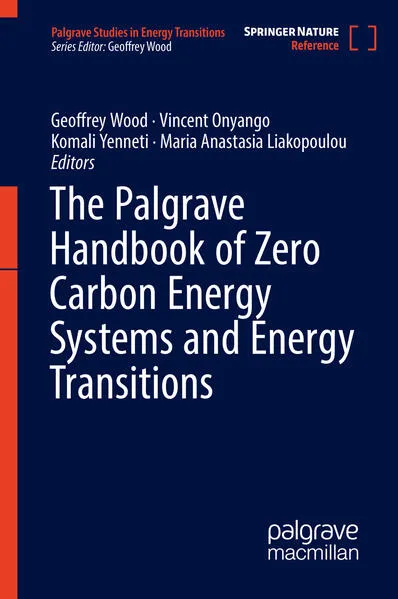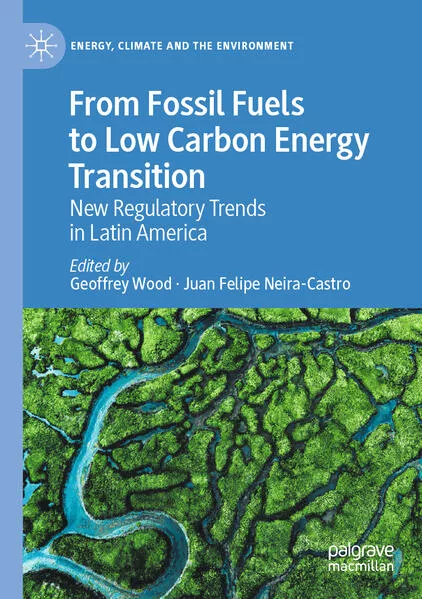
- Publikationen ca: 4
- Fragen & Antworten
Geoffrey Wood
- The Palgrave Handbook of Zero Carbon Energy Systems and Energy Transitions
- From Fossil Fuels to Low Carbon Energy Transition
Geoffrey Wood is a Lecturer in Energy Law at Stirling University Law School, UK. He holds a PhD in Energy Law from the Centre for Energy Petroleum and Mineral Law and Policy (CEPMLP) at the University of Dundee. An interdisciplinary energy and environmental law, policy and regulatory specialist, his research focuses on optimising sustainable energy transitions. Geoffrey has published over 40 articles, books, chapters and other publications, and has lectured, researched and consulted for various organisations in the UK and abroad.
Juan Felipe Neira- Castro works at the National Hydrocarbons Agency (ANH), the administrator of the hydrocarbon resources of Colombia based in Bogotá. Previously, Juan was a Lecturer in Sustainable Development and Energy Policy at the Mining and Energy Law Department at Externado University, Bogotá. He holds an LLM in Petroleum Law and Policy, an MSc in International Oil and Gas Management and a PhD in Energy Law from the Centre for Energy, Petroleum and Mineral Law and Policy (CEPMLP), all from the University of Dundee, Scotland. He has published extensively in areas such as gas regulation in Colombia, unconventional hydrocarbons and energy transition. He has advised international and government entities on public policy and regulatory affairs.
The Palgrave Handbook of Zero Carbon Energy Systems and Energy Transitions
The Palgrave Handbook of Zero-Carbon Energy Systems and Energy Transitions provides a comprehensive and authoritative source of information, analysis and recommendations on the multi- and inter-disciplinary subject of zero carbon energy systems. The Handbook will advance thinking and research underlying the on-going energy transition by; covering a wide range of energy technologies and sources (e.
From Fossil Fuels to Low Carbon Energy Transition
Focusing on five key themes - hydrocarbons, electricity, mining, social license to operate, and arbitration/dispute resolution- via in-depth country and regional case studies, this book seeks to capture the contrasting and sometimes conflicting trends in energy governance in Latin America as it wrestles with a dependence on fossil fuels whilst shifting toward a low carbon future.
From Fossil Fuels to Low Carbon Energy Transition
Focusing on five key themes - hydrocarbons, electricity, mining, social license to operate, and arbitration/dispute resolution- via in-depth country and regional case studies, this book seeks to capture the contrasting and sometimes conflicting trends in energy governance in Latin America as it wrestles with a dependence on fossil fuels whilst shifting toward a low carbon future.
From Fossil Fuels to Low Carbon Energy Transition
Focusing on five key themes - hydrocarbons, electricity, mining, social license to operate, and arbitration/dispute resolution- via in-depth country and regional case studies, this book seeks to capture the contrasting and sometimes conflicting trends in energy governance in Latin America as it wrestles with a dependence on fossil fuels whilst shifting toward a low carbon future.



